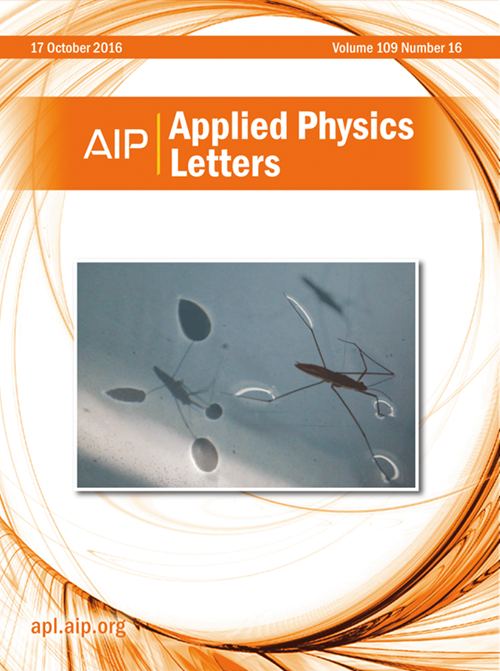通过受激绝热快速通过实现量子信息的稳健单光子生成
IF 3.6
2区 物理与天体物理
Q2 PHYSICS, APPLIED
引用次数: 0
摘要
利用固态量子发射器产生单光子对于推进光子量子技术,特别是量子通信至关重要。随着该领域不断向实际应用案例迈进,并超越屏蔽实验室环境,对量子光源在运行期间的稳健性提出了具体要求。在这种情况下,量子光产生过程对内在和外在效应的稳健性是一项重大挑战。在这里,我们提出了一种稳健的方案,利用半导体量子点中的三层系统,以极低的光子数相干性相干生成不可区分的单光子态。我们的方法结合了绝热快速通过和受激双光子激发的优点。我们展示了强大的量子光生成能力,同时保持了发射光状态的主要量子光学质量。此外,我们还强调了实施各种量子加密协议的直接优势。本文章由计算机程序翻译,如有差异,请以英文原文为准。
Robust single-photon generation for quantum information enabled by stimulated adiabatic rapid passage
The generation of single photons using solid-state quantum emitters is pivotal for advancing photonic quantum technologies, particularly in quantum communication. As the field continuously advances toward practical use cases and beyond shielded laboratory environments, specific demands are placed on the robustness of quantum light sources during operation. In this context, the robustness of the quantum light generation process against intrinsic and extrinsic effects is a major challenge. Here, we present a robust scheme for the coherent generation of indistinguishable single-photon states with very low photon number coherence using a three-level system in a semiconductor quantum dot. Our approach combines the advantages of adiabatic rapid passage and stimulated two-photon excitation. We demonstrate robust quantum light generation while maintaining the prime quantum-optical quality of the emitted light state. Moreover, we highlight the immediate advantages of the implementation of various quantum cryptographic protocols.
求助全文
通过发布文献求助,成功后即可免费获取论文全文。
去求助
来源期刊

Applied Physics Letters
物理-物理:应用
CiteScore
6.40
自引率
10.00%
发文量
1821
审稿时长
1.6 months
期刊介绍:
Applied Physics Letters (APL) features concise, up-to-date reports on significant new findings in applied physics. Emphasizing rapid dissemination of key data and new physical insights, APL offers prompt publication of new experimental and theoretical papers reporting applications of physics phenomena to all branches of science, engineering, and modern technology.
In addition to regular articles, the journal also publishes invited Fast Track, Perspectives, and in-depth Editorials which report on cutting-edge areas in applied physics.
APL Perspectives are forward-looking invited letters which highlight recent developments or discoveries. Emphasis is placed on very recent developments, potentially disruptive technologies, open questions and possible solutions. They also include a mini-roadmap detailing where the community should direct efforts in order for the phenomena to be viable for application and the challenges associated with meeting that performance threshold. Perspectives are characterized by personal viewpoints and opinions of recognized experts in the field.
Fast Track articles are invited original research articles that report results that are particularly novel and important or provide a significant advancement in an emerging field. Because of the urgency and scientific importance of the work, the peer review process is accelerated. If, during the review process, it becomes apparent that the paper does not meet the Fast Track criterion, it is returned to a normal track.
 求助内容:
求助内容: 应助结果提醒方式:
应助结果提醒方式:


